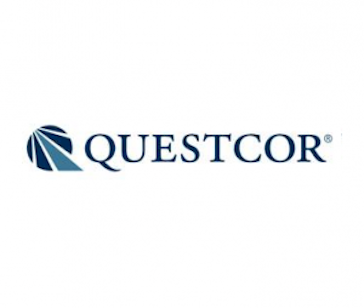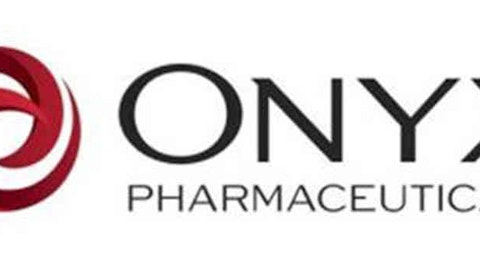Despite some negative news, mainly related to reimbursement issues and excess stock booking, Questcor Pharmaceuticals Inc (NASDAQ:QCOR) recently gained solid momentum due to a couple of factors.

One was the sales growth of Acthar Gel and the addition of BioVectra sales during Q1 2013. The other was the announcement of acquiring exclusive rights of Synacthen from Novartis AG (ADR) (NYSE:NVS). Both facts together made the stock go up 15% and more last week.
Acthar began as a therapy for Infantile Syndrome
Acthar was initially developed for Infantile Spasms, or IS, where it is the only available drug. Later, Acthar began to be marketed by the company for other diseases like Nephrotic Syndrome (NS), Multiple Sclerosis (MS), and various rheumatoid related diseases. In most of these therapeutic areas, there are much larger players who dominate the market.
Synergy with Novartis for Synacthen
Second, as for the synergy with Novartis AG (ADR) (NYSE:NVS) for Synacthen, Acthar is presently sold only in the U.S. Synacthen, however, is widely spread across the European market, but is yet to receive FDA approval to sell in the U.S. The product is mainly indicated for the treatment of rheumatoid diseases, ulcerative colitis, nephrotic syndrome, acute case of multiple sclerosis, and chronic skin diseases using steroids. So, buying a license for Synacthen works well for Questcor Pharmaceuticals Inc (NASDAQ:QCOR). It stops Synacthen from giving Acthar competition in the U.S.
BioVectra acquisition
Thirdly, there is the acquisition of BioVectra, which manufactures the active ingredient for Acthar, called an API. It is possible to sell the active ingredient directly into the market. So, by acquiring BioVectra, Questcor Pharmaceuticals Inc (NASDAQ:QCOR) is creating a partial monopoly in the market where it is the source of both Acthar and its active ingredient.
The diseases addressed by Acthar Gel
Funnily, Acthar makes more money in those therapeutic markets where it is not a major player, compared to in the IS market, where it is the only player. It makes only 10% of its revenue from IS, while it makes 50% from NS, 30% from MS, and 10% from rheumatology therapies. Of these, the MS market is the largest, with an estimated 2017 value of $16.6 billion. At present, Acthar has very small market shares in these larger areas.
Comparison of Acthar with other treatments
Corticosteroids are mostly recommended for the treatment of NS. The products are cheaper, but can’t be used with patients sensitive to steroids. Rituxan from Biogen Idec Inc (NASDAQ:BIIB) is one drug that can be used in steroid sensitive and resistant nephrotic syndrome.
The product is developed and commercialized in collaboration with Genentech. During the first quarter of 2013, Rituxan’s sales were $265 million, a decrease of 7% over the same period in 2012. The decline resulted from the loss of royalty from outside the U.S. Efficiency of Rituxan is sometimes compromised due to its restriction to a few indications of NS. Compared to Rituxan, Acthar has higher potential in chronic stages of various indications of nephrotic syndrome.
The MS therapeutic market is flooded with blockbuster drugs such as Bayer’s Betaseron, Biogen Idec Inc (NASDAQ:BIIB)’s Avonex, Merck’s Rebif, and Teva’s Copaxane. Though they are effective, they are losing their market potential due to patent expiry and generic competition. Acthar is an alternative option which has already proved to be a useful immunosuppressive medication in MS patients.
Celebrex from Pfizer Inc. (NYSE:PFE) is indicated for treatment of osteoarthritis and rheumatoid arthritis worldwide. It is also used for pain management in adults in the U.S., Japan, and some regions in Europe. During first quarter of 2013, sales were $653 million, an increase of 3% over the same period in 2012. The rise was due to an increase in price in the U.S., though it experienced sales pressure from generics. Acthar addresses a broader group of indications than Celebrex.
Risks for Questcor
Despite its higher efficiency, cheaper steroids or other immunosuppressives can be used instead of Acthar due to its high price (around $28,000 per vial). This may have a negative impact on Acthar’s sales volume. In addition, there is no product candidate in the pipeline to support Questcor Pharmaceuticals Inc (NASDAQ:QCOR)’s business outside of Acthar.
Market performance
In first quarter of 2013, net sales were $135.1 million, up 41% compared to $96 million in the same period in 2012. The growth was due to increase in prescription demand of Acthar for NS, MS, and IS therapy. Net sales of Acthar were $126.7 million, up 32% over the same period in 2012.
In addition, sales of $8.4 million from BioVectrae improved Questcor Pharmaceuticals Inc (NASDAQ:QCOR)’s performance. The company has a strong financial position with cash balance of $153.4 million as of March 31, 2013.
Investment thesis
Questcor Pharmaceuticals Inc (NASDAQ:QCOR) has shown significant sales growth due to the increasing demand of its flagship product, Acthar, across four therapeutic areas. The company continues to identify and expand Acthar’s use in existing and new indications. The addition of BioVectra will open up opportunity for API sales. Finally, a strong cash position and a stable balance sheet will help drive growth for Questcor.
Kanak Kanti De has no position in any stocks mentioned. The Motley Fool has no position in any of the stocks mentioned. Kanak is a member of The Motley Fool Blog Network — entries represent the personal opinion of the blogger and are not formally edited.
The article A Biotech Betting Everything on a Single Drug originally appeared on Fool.com is written by Kanak Kanti.
Copyright © 1995 – 2013 The Motley Fool, LLC. All rights reserved. The Motley Fool has a disclosure policy.




